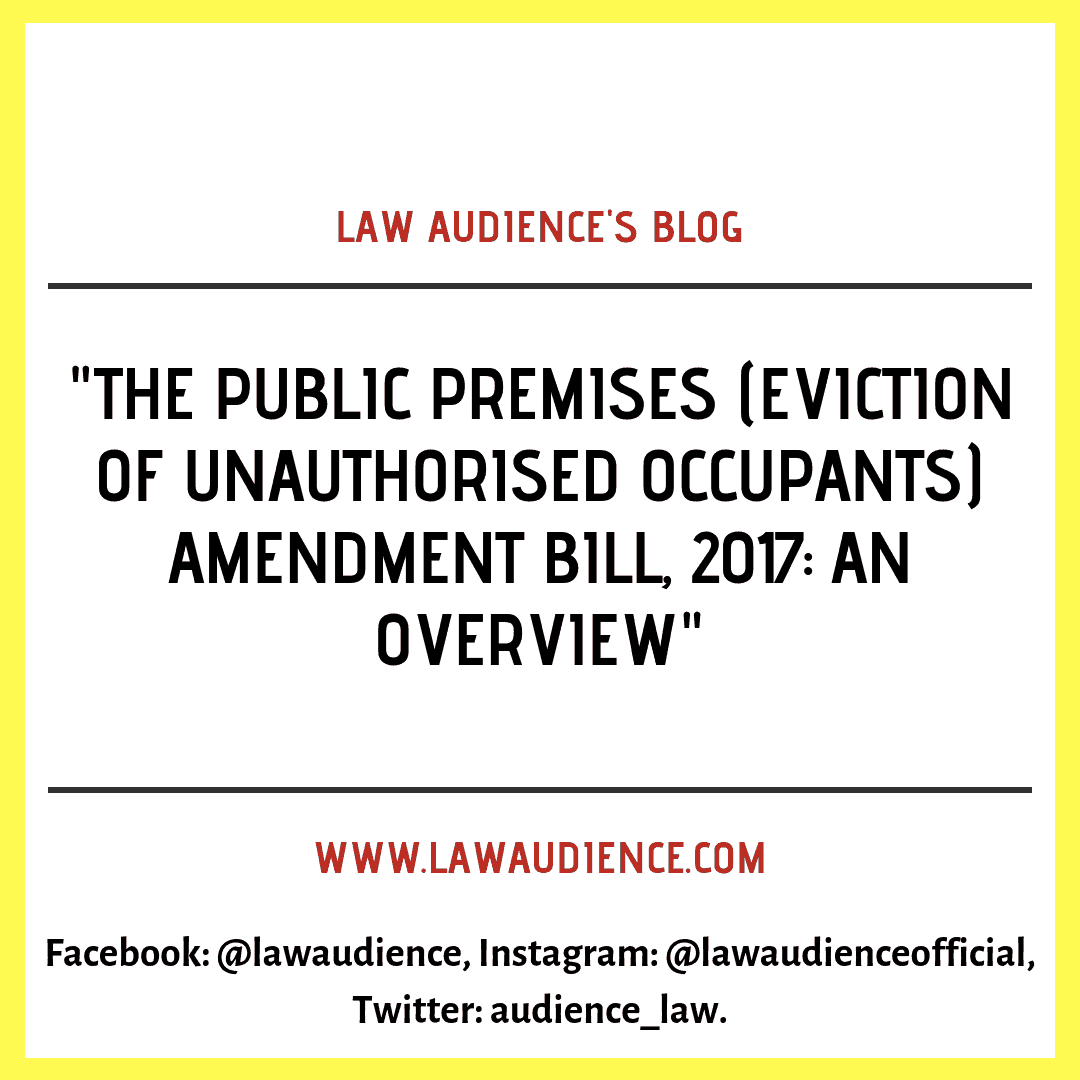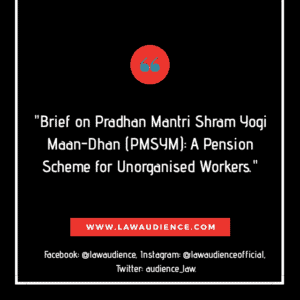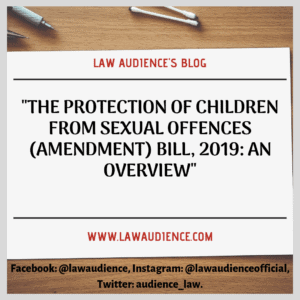WRITTEN BY: MS. KAJAL KUKREJA, LL.B, FINAL YEAR STUDENT AT NEW LAW COLLEGE, BHARATI VIDYAPEETH DEEMED UNIVERSITY & RESEARCH WRITER AT LAW AUDIENCE.
I. SUMMARY OF THE BILL:
a) INTRODUCTION:
The Public Premises (Eviction of Unauthorised Occupants) Act, 1971, authorises expulsion of the unofficial resident from the premises of the public.
The Union Cabinet chaired by the Prime Minister Shri Narendra Modi has given its approval for amendment in Section 2 and Section 3 of the Public Premises (Eviction of Unauthorised Occupants) Act, 1971 (PPE Act, 1971), by inserting definition of ‘residential accommodation occupation’ in a new clause in section 2 of the Act and inserting provisions relating to eviction from ‘residential accommodation occupation’ in a new sub-section 3B below sub-section 3A of Section 3 of the Act[1].
After the approval from the Union Cabinet, The Public Premises (Eviction of Unauthorised Occupants) Amendment Bill, 2017, was introduced in the Lok Sabha as on 31st July 2017. It is yet to be passed by the Lok Sabha and Rajya Sabha. It means that the Bill is still pending in the Lok Sabha.
The 2017 Bill, recommended the following changes namely,
(i) Amendment of Section 2 of the Principal Act (THE PUBLIC PREMISES (EVICTION OF UNAUTHORISED OCCUPANTS) ACT, 1971) (a new clause (fa)[2] shall be inserted and this clause explains residential accommodation occupation);
(ii) Insertion of a new Section i.e., Section 3B[3] (Eviction from residential accommodation);
(iii) Amendment of Section 7 of the Principal Act. A new sub-section, i.e., sub-section 3A[4], shall be inserted.
b) EXTENT AND OBJECT:
- This Act may be called as The Public Premises (Eviction of Unauthorised Occupants) Act, 2017.
- It’ll extend to the whole of India.
- It shall come into force on such date as the Central Government may, by notification in the Official Gazette, appoint.
c) REASONS BEHIND THE INTRODUCTION OF THE BILL:
The present Bill tends to amend the Principal Act of 1971. There have been certain cases in which numerous VIPs to remain in the bungalows for many years by taking this matter to the Court. It means that these people have been challenging the order of eviction in the Court for a long time.
Thus, to curb the above-mentioned problem the present bill introduces a new amendment which read as follows:
“If any person, against whom an order of eviction has been issued by the competent authority or officer, approaches the Court or challenge the order of eviction in the Court of law, shall have to pay damages on the monthly basis to the prescribed authority for the residential accommodation held by him.”
d) REMARKABLE PROVISIONS:
The remarkable provisions of the 2017 bill are discussed below:
- The new amendment bill introduced a new section 3B. It allows the procedure of eviction to residents also[5].
- Introduction of the definition i.e. “residential accommodation occupation’ under section 2 with a new clause[6].
- Insertion of a new sub-section 3A under Section 7 of the Principal Act[7].
II. CONCLUSION:
From the above points, we can conclude that it is frequently seen that the unofficial residents do not leave the accommodation of government on expiry of the terms and conditions of the license. So, these amendments are done for the smooth expulsion of unauthorised residents from the accommodation of residence. It also ensures for vacating their property without any requirement of detailed procedures under sections 4 and 5 of the Principal Act. Moreover, it enhances the accessibility of residence to new occupant and also improves the level of satisfaction.
[1] Cabinet Approves Amendment of The Public Premises (Eviction of Unauthorized Occupants) Act, 1971 to Enable Summary Eviction Proceedings in Residential Accommodation, (Jan. 30, 2019, 7:30 PM) http://pib.nic.in/newsite/PrintRelease.aspx?relid=161853.
[2] ‘(fa) “residential accommodation occupation”, in relation to any public premises means occupation by any person on grant of licence to him to occupy such premises on the basis of an order of allotment for a fixed tenure or for a period he holds office, in accordance with the rules and instructions issued in this regard, made under the authority of the Central Government, a State Government, a Union territory Administration or a statutory authority, as the case may be.
[3] “3B. (1) Notwithstanding anything contained in section 4 or section 5, if the estate officer has information that any person, who was granted residential accommodation occupation, is in unauthorised occupation of the said residential accommodation, he shall:
(a) forthwith issue a notice in writing calling upon such person to show cause within a period of three working days why an order of eviction should not be made;
(b) cause the notice to be served by having it affixed on the outer door or some other conspicuous part of the said residential accommodation, and in such other manner as may be prescribed, whereupon the notice shall be deemed to have been served upon such person.
(2) The estate officer shall, after considering the cause, if any, shown by the person on whom the notice is served under sub-section (1) and after making such inquiry as it deems expedient in the circumstances of the case, for reasons to be recorded in writing, make an order of eviction of such person.
(3) If the person in unauthorised occupation refuses or fails to comply with the order of eviction referred to in sub-section (2), the estate officer may evict such person from the residential accommodation and take possession thereof and may, for that purpose, use such force as may be necessary.”.
[4] “(3A) If the person in unauthorised occupation of residential accommodation challenges the eviction order passed by the estate officer under sub-section (2) of section 3B in any court, he shall pay damages for every month for the residential accommodation held by him.”.
[5] supra note 2.
[6] supra note 1.
[7] supra note 3.



